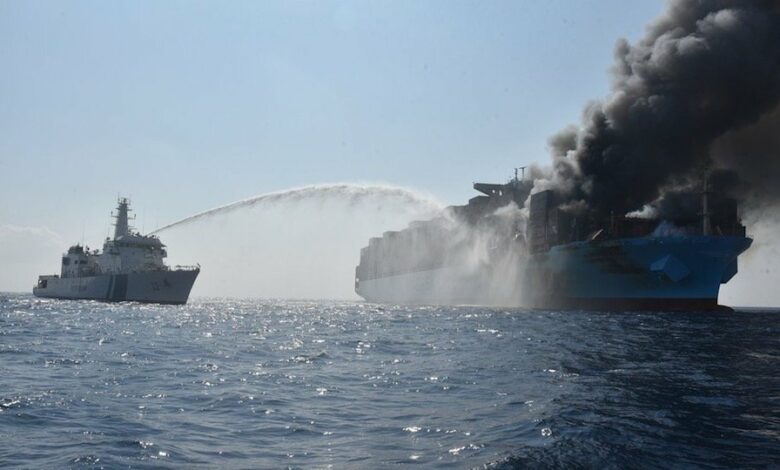World Shipping Council outlines digital solution in battle to contain fires from misdeclared cargoes

Despite industry and government efforts, dangerous cargo that has not been declared, or that has been incorrectly declared or labelled, continues to cause fires and explosions, hurting and killing vessel crew and transportation staff. In response to this continued safety challenge the World Shipping Council (WSC), representing liner carriers, is taking additional action, developing a shared industry process for cargo screening and inspections.
This voluntary initiative, the Cargo Safety Program, will rely on a digital solution made up of a common screening tool, verified shipper database, and a database of approved container inspection companies, provided and operated by an independent third-party vendor, with the WSC now seeking third-party provider proposals.
The core functionality of the system will be to screen booking information against a comprehensive keyword library and risk algorithm. High-risk bookings will be flagged for further investigation and/or inspection, and lessons learned through experience will be used to continuously improve the screening tool. The emphasis is on identifying and correcting dangerous conditions before containers with dangerous cargoes are introduced into the supply chain.
“A common industry approach to cargo safety will create a safer working environment not only for ship crews, but for everyone involved in inland transport or working in ports and terminals, as well as for the communities around us. For shippers, it will make ocean transport more efficient and dependable, by stopping dangerous shipments that can disrupt the supply chain,” said John Butler, president of the WSC.
Over the past decade, containership fires have seen a disturbing rise, with a notable number resulting in casualties and total losses. According to the 2023 Allianz Safety and Shipping Review, there have been 64 reported fires on containerships in the past five years. TT Club estimates that a serious ship fire occurs every 60 days. One of the key factors contributing to these fires is hazardous cargo that has not been declared, mis-declared or that has not been properly packed by shippers.
Despite comprehensive and clear international and national regulations on the transport of dangerous goods, these goods continue to be mis-declared or not declared at all, which complicates detection, may result in ship fires and make firefighting much more challenging. In 2022, fire-related incidents at sea surged by over 17% compared to the previous year.
